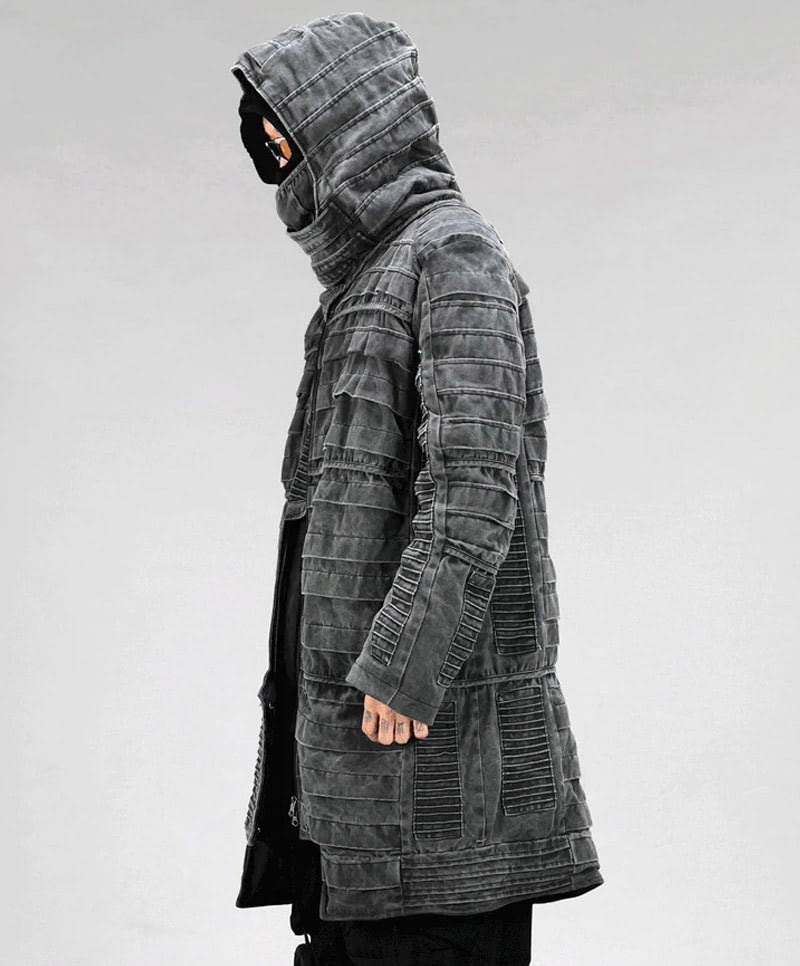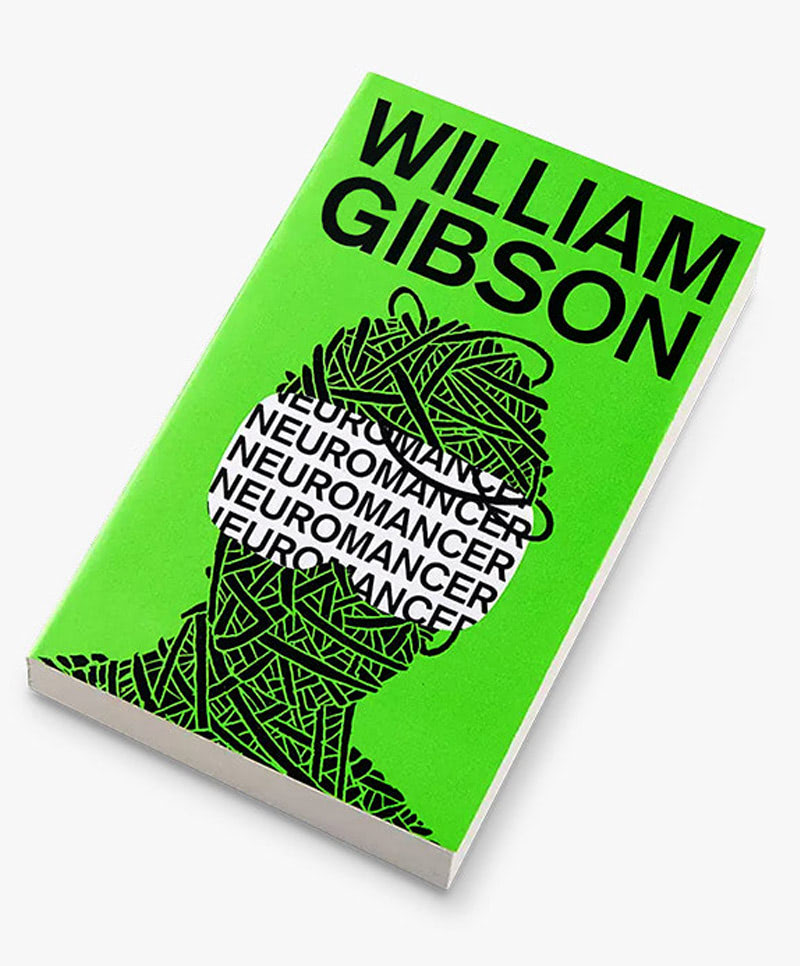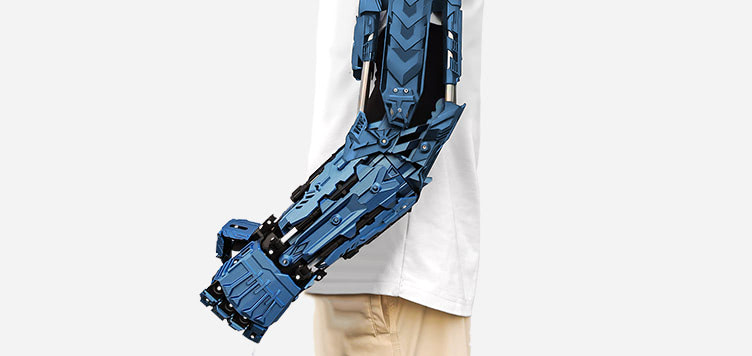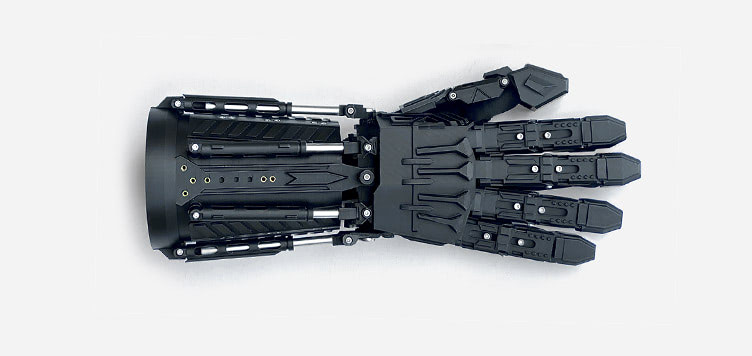
Regarded as one of the most influential and visionary writers of science fiction in the late 20th and early 21st centuries,
William Gibson's novels and short stories have fundamentally shaped the term cyberpunk, a subgenre of science fiction that depicts a dystopian future where advanced technology, artificial intelligence, and global corporations coexist with social decay, cybercrime, and marginalised subcultures.
To begin with, the term "cyberspace" was coined by Gibson himself in his short story "Burning Chrome" (1982) - an original concept he further popularised in his debut novel, "Neuromancer" (1984), today considered the quintessential cyberpunk work and the foundation that originally laid out all the ideas, aesthetics and imagery known today as "cyberpunk".
Had he trademarked the words cyberspace and cyberpunk as brands back then, Gibson today would be collecting generous royalties from all over the market spectrum, ranging from Holywood to European game studios.
In Neuromancer, Gibson introduced the protagonist Henry Case, a hacker who is hired for a mysterious job that involves breaking into a powerful artificial intelligence called Wintermute.
 Neuromancer was the first novel to win the Nebula Award, the Hugo Award, and the Philip K. Dick Award, the three most prestigious awards in science fiction. It also spawned two sequels, Count Zero (1986) and Mona Lisa Overdrive (1988), which completed the Sprawl trilogy, named after the megacity that stretches from Boston to Atlanta in Gibson's fictional world.
Neuromancer was the first novel to win the Nebula Award, the Hugo Award, and the Philip K. Dick Award, the three most prestigious awards in science fiction. It also spawned two sequels, Count Zero (1986) and Mona Lisa Overdrive (1988), which completed the Sprawl trilogy, named after the megacity that stretches from Boston to Atlanta in Gibson's fictional world.
Gibson's novels and stories have influenced not only literature, but also film, music, art, fashion, and culture. His vision of cyberspace, a virtual reality where hackers can manipulate data and information, has inspired films such as The Matrix (1999), Ghost in the Shell (1995), and Blade Runner (1982), which Gibson himself acknowledged as an influence on his writing.
His depiction of cyberpunk subcultures, such as the street samurai, the console cowboys, and the cyberpunks, has influenced musicians such as Nine Inch Nails, Depeche Mode, and Billy Idol, who named his album Cyberpunk (1993) after Gibson's genre. His style of writing, which combines noir, hard-boiled, and postmodern elements, has influenced authors such as Neal Stephenson, Bruce Sterling, and Cory Doctorow, who have continued to explore the themes and issues of cyberpunk in their own works.
Gibson's influence on cyberpunk culture and society is undeniable. He has created a rich and complex world that reflects the anxieties and possibilities of the digital age. He has challenged the conventional boundaries of science fiction and expanded the scope of human imagination. He has been hailed as the "noir prophet" of cyberpunk and the "father of cyberspace".
Cyberpunk culture has influenced various aspects of modern society, especially fashion, creating a totally new aesthetic movement that combines futuristic elements with punk, gothic, and streetwear influences.
 The so-called Cyberpunk fashion is characterized by the use of synthetic fabrics, metallic colors, neon accents, cybernetic implants, augmented accessories, and extreme silhouettes. Cyberpunk fashion expresses the individuality and creativity of the wearer, as well as their resistance to the oppressive and dehumanized system. Cyberpunk fashion also incorporates elements of functionality and practicality, such as utility belts, combat boots, face coverings, and backpacks.
The so-called Cyberpunk fashion is characterized by the use of synthetic fabrics, metallic colors, neon accents, cybernetic implants, augmented accessories, and extreme silhouettes. Cyberpunk fashion expresses the individuality and creativity of the wearer, as well as their resistance to the oppressive and dehumanized system. Cyberpunk fashion also incorporates elements of functionality and practicality, such as utility belts, combat boots, face coverings, and backpacks.
This new fashion movement has become more popular and mainstream in recent years, thanks to the influence of cyberpunk media, such as movies, video games, comics, anime and Gibson's work itself. Other examples of cyberpunk media that have inspired cyberpunk fashion trends are Blade Runner, Ghost in the Shell, The Matrix, Deus Ex, Akira, Cyberpunk 2077, and Altered Carbon. Cyberpunk fashion has also been adopted by celebrities, musicians, and influencers, who have incorporated cyberpunk elements into their outfits, hairstyles, and accessories.
Cyberpunk fashion has had a significant impact on modern society, as it reflects the current and future challenges and opportunities that humanity faces in the age of technology. Cyberpunk fashion challenges the norms and conventions of traditional fashion, and offers a way of expressing one's identity, creativity, and values. Cyberpunk fashion also raises questions about the ethical, social, and environmental implications of technology, and the role of human agency and choice in a world that is increasingly controlled by corporations and algorithms. Cyberpunk fashion is more than just a style, it is a movement.
If you are interested in learning more about William Gibson and his works, you can visit his official website or check out some of his books from Hypebrother store.
Back to The Blog®
To begin with, the term "cyberspace" was coined by Gibson himself in his short story "Burning Chrome" (1982) - an original concept he further popularised in his debut novel, "Neuromancer" (1984), today considered the quintessential cyberpunk work and the foundation that originally laid out all the ideas, aesthetics and imagery known today as "cyberpunk".
Had he trademarked the words cyberspace and cyberpunk as brands back then, Gibson today would be collecting generous royalties from all over the market spectrum, ranging from Holywood to European game studios.
In Neuromancer, Gibson introduced the protagonist Henry Case, a hacker who is hired for a mysterious job that involves breaking into a powerful artificial intelligence called Wintermute.
 Neuromancer was the first novel to win the Nebula Award, the Hugo Award, and the Philip K. Dick Award, the three most prestigious awards in science fiction. It also spawned two sequels, Count Zero (1986) and Mona Lisa Overdrive (1988), which completed the Sprawl trilogy, named after the megacity that stretches from Boston to Atlanta in Gibson's fictional world.
Neuromancer was the first novel to win the Nebula Award, the Hugo Award, and the Philip K. Dick Award, the three most prestigious awards in science fiction. It also spawned two sequels, Count Zero (1986) and Mona Lisa Overdrive (1988), which completed the Sprawl trilogy, named after the megacity that stretches from Boston to Atlanta in Gibson's fictional world.Gibson's novels and stories have influenced not only literature, but also film, music, art, fashion, and culture. His vision of cyberspace, a virtual reality where hackers can manipulate data and information, has inspired films such as The Matrix (1999), Ghost in the Shell (1995), and Blade Runner (1982), which Gibson himself acknowledged as an influence on his writing.
His depiction of cyberpunk subcultures, such as the street samurai, the console cowboys, and the cyberpunks, has influenced musicians such as Nine Inch Nails, Depeche Mode, and Billy Idol, who named his album Cyberpunk (1993) after Gibson's genre. His style of writing, which combines noir, hard-boiled, and postmodern elements, has influenced authors such as Neal Stephenson, Bruce Sterling, and Cory Doctorow, who have continued to explore the themes and issues of cyberpunk in their own works.
Gibson's influence on cyberpunk culture and society is undeniable. He has created a rich and complex world that reflects the anxieties and possibilities of the digital age. He has challenged the conventional boundaries of science fiction and expanded the scope of human imagination. He has been hailed as the "noir prophet" of cyberpunk and the "father of cyberspace".
Cyberpunk culture has influenced various aspects of modern society, especially fashion, creating a totally new aesthetic movement that combines futuristic elements with punk, gothic, and streetwear influences.
 The so-called Cyberpunk fashion is characterized by the use of synthetic fabrics, metallic colors, neon accents, cybernetic implants, augmented accessories, and extreme silhouettes. Cyberpunk fashion expresses the individuality and creativity of the wearer, as well as their resistance to the oppressive and dehumanized system. Cyberpunk fashion also incorporates elements of functionality and practicality, such as utility belts, combat boots, face coverings, and backpacks.
The so-called Cyberpunk fashion is characterized by the use of synthetic fabrics, metallic colors, neon accents, cybernetic implants, augmented accessories, and extreme silhouettes. Cyberpunk fashion expresses the individuality and creativity of the wearer, as well as their resistance to the oppressive and dehumanized system. Cyberpunk fashion also incorporates elements of functionality and practicality, such as utility belts, combat boots, face coverings, and backpacks.This new fashion movement has become more popular and mainstream in recent years, thanks to the influence of cyberpunk media, such as movies, video games, comics, anime and Gibson's work itself. Other examples of cyberpunk media that have inspired cyberpunk fashion trends are Blade Runner, Ghost in the Shell, The Matrix, Deus Ex, Akira, Cyberpunk 2077, and Altered Carbon. Cyberpunk fashion has also been adopted by celebrities, musicians, and influencers, who have incorporated cyberpunk elements into their outfits, hairstyles, and accessories.
Cyberpunk fashion has had a significant impact on modern society, as it reflects the current and future challenges and opportunities that humanity faces in the age of technology. Cyberpunk fashion challenges the norms and conventions of traditional fashion, and offers a way of expressing one's identity, creativity, and values. Cyberpunk fashion also raises questions about the ethical, social, and environmental implications of technology, and the role of human agency and choice in a world that is increasingly controlled by corporations and algorithms. Cyberpunk fashion is more than just a style, it is a movement.
If you are interested in learning more about William Gibson and his works, you can visit his official website or check out some of his books from Hypebrother store.
You May Also Like
 |
 |
 |
If you're a brand, label or designer looking to promote your business, get in touch with us to launch or sell your original products and discuss product placement or campaigns.
